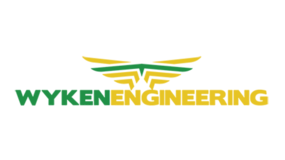
The University of Wolverhampton is a learning community that promotes excellence, innovation and creativity. The Midlands Simulation Group (MidSim), which is based in the School of Technology, use the latest high performance computers to solve aerospace design problems using finite element analysis, and computational fluid dynamics techniques. These are always backed up by experimental data from our partners in industry. Previous projects have included impact & ballistics analysis, creation of perfect joints, and the development of lightweight high performance structures. MidSim’s partners on major projects have included Rolls-Royce PLC, BAE-Systems, and HS Marston.
CASE STUDY: Improved heat exchangers for aero engines.
The need to improve the engine efficiency, reduce fuel consumption, and hence, the environmental impact of air travel has increased over the last few years. This process can be greatly aided by improving the thermal efficiency of aero engines. MidSim led the numerical simulations during a recent development of novel heat exchangers. Extensive computational fluid dynamics studies coupling heat transfer with fluid flow were carried out for hundreds of heat exchanger configurations. The modelling work was correlated with samples tested in a wind tunnel. This process enabled a better understanding of the thermal processes in the system, allowed for more heat exchanger configurations to be evaluated than is possible with experimental work, and advanced the product development cycle. New manufacturing techniques were also applied to the product.
Research activities
- Advanced computer modelling and simulation remains the core strength of the group. Finite element analysis and computational fluid dynamics techniques are employed.
- Remote networking has increasingly become an important part of the group’s research delivery method. New methods of linking with partners with advanced video and audio systems have been used with aerospace partners abroad.
- Materials research is a long-standing strength of the group. The group has recently obtained a patent on a novel affordable diffusion bonding process in which materials can be bonded quickly without any discernible bond lines in the process. Super plastic blow forming processes have been used to develop lightweight structures. And thermal management of the tooling has been investigated to aid the super plastic forming process.
- New product development has been a long standing expertise of the group. The group is able to take a product from the concept stage up to the initial materials type and manufacturing phases.
Courses and degrees
The School of Technology offers a variety of engineering degrees. The module topics include materials, production engineering, CAD, engineering management, and finite element analysis, amongst others. Students also have the opportunities to apply for industrial placements, and most of the degree courses are accredited by the IET and IMechE.






